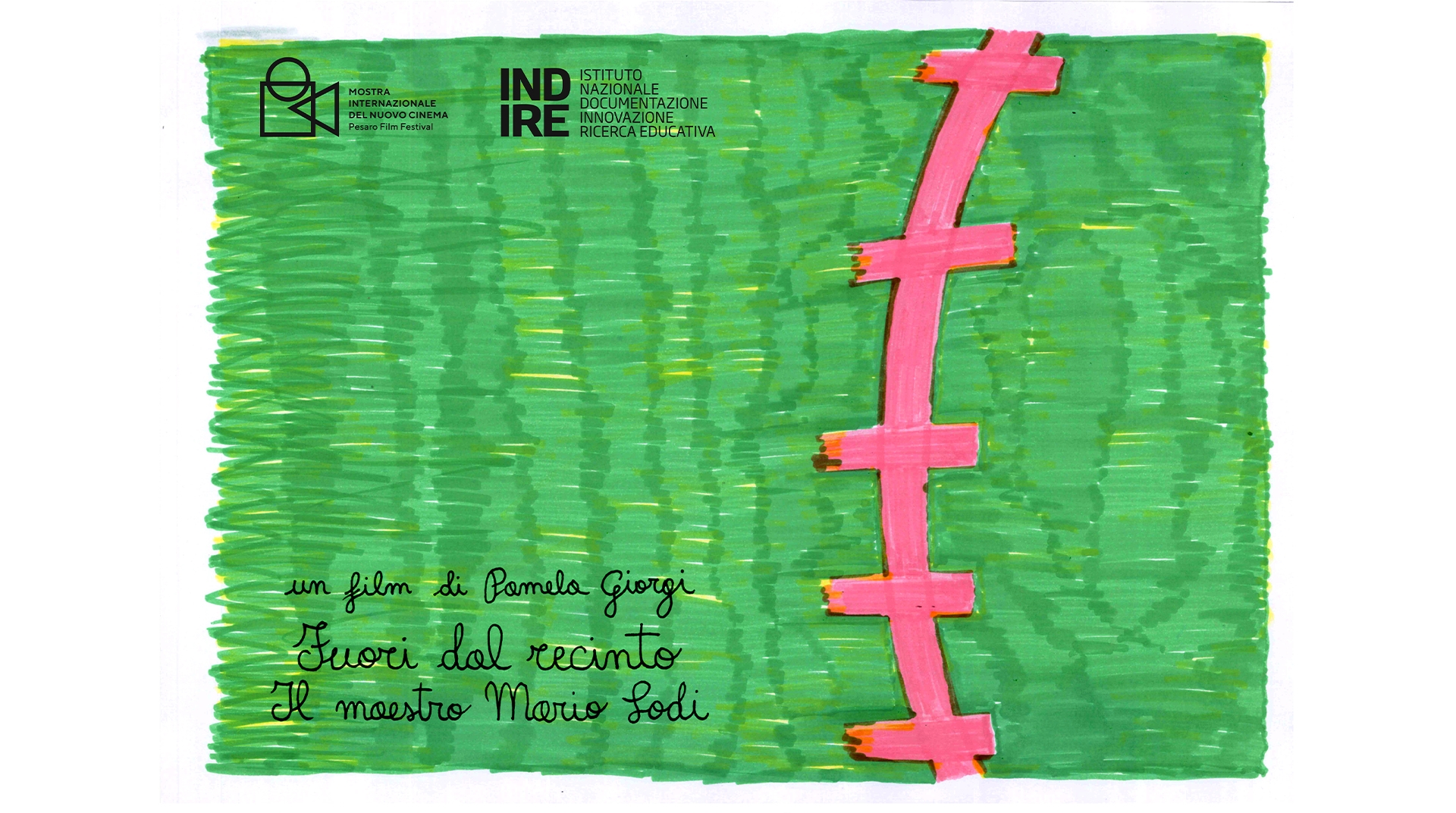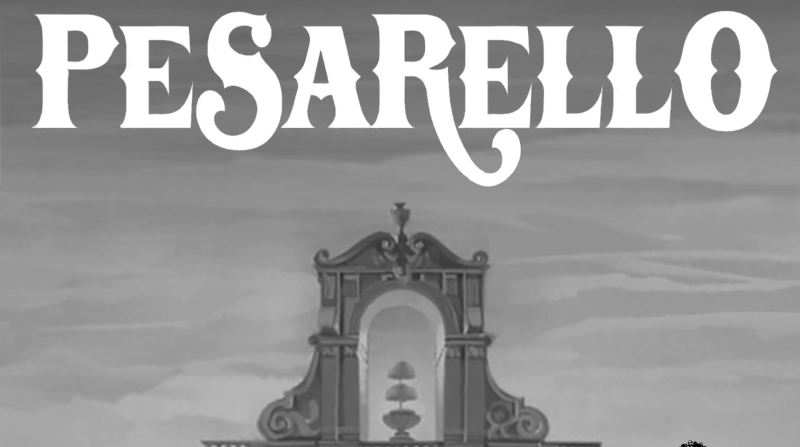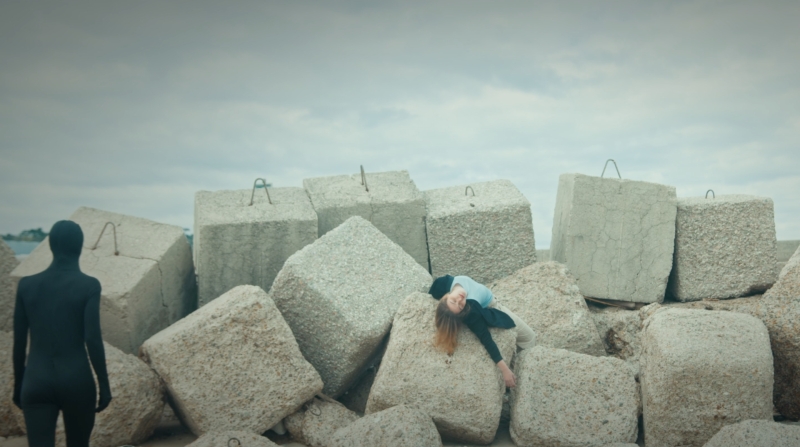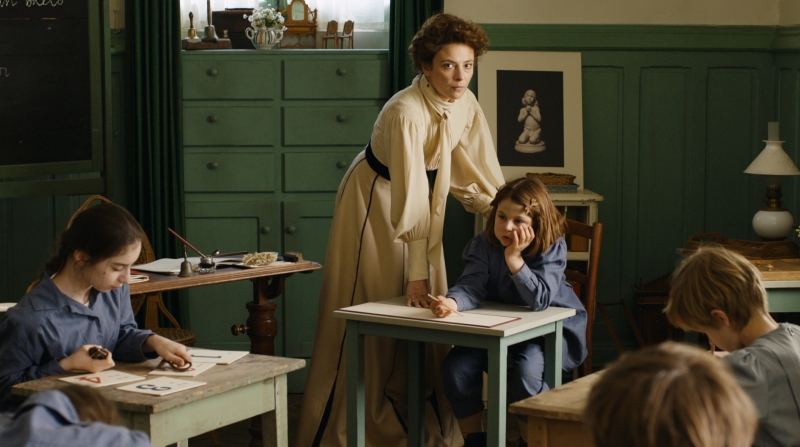In the framework of the initiatives for the centenary of Mario Lodi, the Pesaro Film Festival, in collaboration with Casa delle Arti e del Gioco-Mario Lodi, INDIRE, and RETE di Cooperazione Educativa, presents: Mario Lodi’s Centenary
Through the words of those who were acquainted with Mario Lodi and held him in esteem, a narrative unfolds blending imagination and fantasy. A school beyond set boundaries. Conscious, active, and ethical citizenship. Brave teacher and happy student. To be both child and play, free and educated, democratic and polite.
On November 10, 1871, in the village of Ujiji on the shores of Lake Tanganyika, East Africa, the British journalist Henry Morgan Stanley – who had left from London in 1869 – met the doctor, missionary, and explorer David Livingstone, who had been missing for three years. He greeted him with the impeccable, legendary phrase, “Doctor Livin- gstone, I presume.” One hundred years later, March 1971, Vittorio De Seta wrote in his production notes for the shooting of his film Diary of A Teacher, “I’m going to visit Mario Lodi in Piadena. An extraordinary man.” We don’t know. No one can. But we like to think that there are invisible threads that help interweaving lives and people, souls and minds and sensibilities. [...] De Seta debuted as an assistant film director [with] Jean-Paul Le Chanois, who in 1949 had made an amazing film, I Have a New Master, starring Bertrand Blier. The subject was the life and work of Célestin Freinet, the French schoolteacher who much inspired the Movimento di Cooperazione Educativa and Mario Lodi. (Le Chanois went on to direct one of the most beautiful adaptations of Les Misé- rables, with Jean Gabin, 1958.) Early seventies, Vittorio De Seta began to deal with school. Screenwriter Ugo Pirro suggested he reads Un anno a Pietralata, where teacher Albino Bernardini described how he worked in the outskirts of Rome. De Seta decided to make a film on this, he did research (Freinet law, don Milani, Mario Lodi), and met schoolteachers and educators (Lina Ciuffini, Alberto Alberti, Maria Luisa Bigiaretti, Al- berto Manzi, don Roberto Sardelli). As the great film director he was, he realized that he was bound to make a very particular film. He wrote, “I am aware that I cannot shoot this film based on a script. The purpose of the new, ‘active,’ ‘creative’ school is above all to liberate, express the individuality of the child. It takes inspiration from life and not books, from news reports, from the milieu. It swerves from the old school based on superficial factual knowledge, with names and dates to learn by heart. The new school abolishes the old authoritarian relationship of the teacher with their pupils, and trans- forms the teacher in a collaborator, a coordinator, nothing else. How could you achieve all this, convincingly, giving the children a script to learn by heart? (...) It would be ab- surd, contradictory, and foolish. This is why I am going to shelve Bernardini’s book. He experienced the story he told. My film will do the same. I feel that the only way to make it is ‘to live,’ filming reality, experiencing true pedagogy.” Therefore, De Seta came to work with Francesco Tonucci, a CNR psychologist and pedagogist who acted as con- sultant for the screenplay. By way of Tonucci, he met Mario Lodi; he even asked him to play the leading role. (A few years earlier, in Vie nuove a journalist interviewed Mario and commented, “What an actor’s face, this teacher!”) Mario would not accept, and Piadena missed the possibility of boasting a film star; on the other hand, it secured that the work of a great teacher was continued. Diary of A Teacher, starring the ex- traordinary Bruno Cirino, was broadcast in four episodes in 1973, with an average of 15 million viewers per episode. (And on the bedside table of teacher Bruno you will glimpse for a moment Il paese sbagliato). The remarkable success gives De Seta ideas and impetus to make a new series of documentaries. The title is Quando la scuola cam- bia, in four episodes. [...] The four documentaries are: “All citizens are equal without dis- tinction of language”, dedicated to the figure of the teacher Carmine De Padova, who taught at school and afterschool in an Albanian linguistic island in San Marzano di San Giuseppe, near Taranto; “The different ones”, which tells the story of the inclusion of four disabled children in schools in the province of Lecce; “Labor together is not hard”, describing the beautiful work of teacher Caterina Foschi Pini in an experimental school in the Gorla district of Milan. The first of these documentaries is “Departing from the Child”. Mario Lodi, riding a bicycle in the fog, pedals to the Vho di Piadena school. The film is awesome. Beautiful in terms of film language, because the hand-held camera – sometimes operated by that extraordinary cinematographer who is Luciano Tovoli, sometimes by the director himself – follows silently, with the attentive and inspired eye of the documentary filmmaker, the daily work of the teacher and the boys and girls. Beautiful in pedagogical terms, because the inserts in which Mario Lodi discusses straightforwardly the principles that inspire his method of action are still today an un- surpassed and very relevant lesson on practices, that we would like to see in every school. Beautiful on the human level, because – for example – there are moments, such as the extraordinary sex education lesson taught by one of those life mentors whom Mario involved in teaching (a farmer with a couple of toads in love) or the debate be- tween boys and girls on a very difficult topic for everyone, like the death of a relative, in which the intensity of the shooting adds to the emotion of life.
Carlo Ridolfi, ‘Quando i maestri si incontrano,’ Note mazziane n. 4, October-December 2012

A teacher, writer, and pedagogue, Mario Lodi was born in Vho di Piadena in 1922. After earning his master's degree, he started teaching in 1948. In 1955, he came into contact with the Movimento di Cooperazione Educativa, a group of fervent teachers and educators who pursued the idea of adapting teaching in public schools to the principles of the Republican Constitution. Civil commitment, the commitment to promote feelings of freedom and cooperation, and ethical activism combined with anti-fascism are narrative topics and good practices of his active, always pioneering, educational methods.
After retiring, Lodi continued his activity in the educational field. In 1989 - a very special year in history story as well as his personal story - he received the International Lego Award; he founded La Casa delle Arti e del Gioco (www.casadelleartiedelgioco.it), a workshop where you get to experiment with all languages of mankind; he was awarded an honorary degree in pedagogy from the University of Bologna.
In May 2001, he was appointed by the Ministry of Education as a member of the board of directors of INDIRE, whose task is to collect records of the experiences carried out in the Italian school, teachers’ refresher courses, project research and assessment.
In November 2001, he began the exchange of autobiographical writings with girls and boys, an experience that lasted for several years. In collaboration with the portal Popolis, he wrote the column "The teacher answers", a correspondence with children on various problems of our times.
In March 2006, he was awarded the 2005 UNICEF Award “Dalla parte dei bambini”.
Over twenty-two years of teaching he wrote many books: fairy tales and short stories (Bandiera, Cipì, La mongolfiera), but also works inspired by his pedagogical experiences (Il Paese sbagliato, Partire dal bambino, La scuola e i diritti del bambino).
Mario Lodi died at his home in Drizzona on March 2, 2014.

A lecturer in the history of training processes and a journalist and editorial director of the magazine Digital Cultures, in 2020 Pamela Giorgi created the project La Scuola allo Schermo (Indire), presented at the 56th edition of the Pesaro Film Festival.
ALL SCREENINGS ARE FREE




